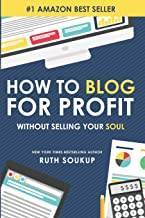Most of us probably remember the 2008 story about the three teenagers who happened to be working late and decided to take a bubble bath in their employer’s (Kentucky Fried Chicken) kitchen basin. Then instead of keeping it a secret, the three bikini-clad, Northern California teens videotaped it and and posted it on both MySpace and YouTube with captioning.
Before the then unidentified 17-year old could clear her MySpace account, the video was seen by the wrong people. Hence, leading to her and the other two girls’ firings.
It’s Not Just Online Videos That Get Us into Trouble
While many of us have probably not done anything quite so risqué and then posted it online, videos are not the only thing that can cost us our good, online reputation. Angry forum posts, raging blog comments, political rants, and a whole list of online communications can cost us an otherwise good reputation. Whether you are tweeting, befriending or voicing your online opinions, words matter and pictures matter too.
When hiring, companies now conduct an online background search using not only major search engines, but also search features on Facebook and Twitter as part of their hiring background check. There have been stories of otherwise qualified applicants not being hired due to a silly, drunken picture posted on Facebook.
We’ve Gone From Big Brother to Big Data
It used to be that Big Brother was watching you! Now, it is Big Data is watching you too! As more and more companies (both offline and online) are collecting information about you to be studied. In his bestselling book, Moneyball, Michael Lewis proposes formulas that companies can use to see how likely potential hires are to excel in a company. This new science is called people analytics and the information is collected and fed into company databases. So, be careful what you post online.
Just remember. Not all forums are created equally. There are private forums, and there are public forums. Make sure you know which ones are which before you rant about your boss or former clients. Search engines can and will find public forum information.
It’s Not Always What We Say, But…
Sometimes it’s not even what we have to say but, what others have said or written about us. It never hurts to run an occasional web search using Google or Bing and check what —if anything—has been written about you. If you or your family are frequently in the public eye, you might want to join an online reputation management system such as Reputation.com.
There are a total of about 50 different sites similar to these, and some are free and some are not.
What To Do If You Find Defamatory Information About Yourself
Should you yourself conduct a search and find defamatory information, your first responsibility should be to attempt to contact the source. Is there a way to contact the website owner with your concern or request? Most websites or blogs have contact information or you can go to the Whois Lookup.
If the information about you is particularly libelous and the blog owner or website owner does nothing to remove the information, you might consider contacting an attorney or even the FCC (Federal Communications Commission). I knew one lady whose husband received a very negative review on a product that he handmade and sold on eBay. While it is okay for someone to write a negative review, it is NOT okay to do it in a libelous way.
If you are a business owner, then by all means check out any Google Reviews or Yelp reviews left about you business. If you find anything derogatory, try to respond the the customer by addressing any negative experiences and try to invite them back for a better experience next time.
How Will the Damaging Information Be Removed?
How is information removed once it is posted? Outside of the legal system (last resort), any libelous information can be removed by the website owner using a Google Removal Tool or a Bing Removal Tool or hopefully both. Not only will all links have to be removed, but also any file attachments will need to be purged from the File Manager of the website or blog.
Even if something is not currently being displayed in the public arena, it is still possible—for about the first month—to still be picked up by a search engine. Many of us from time to time have seen a “cached” article or website appear in an online search. Eventually, time will win over the search engine, and the information will become obsolete and disappear. However, it is imperative that your information be purged as soon as possible from the File Manager (root source) before more damage is done to your reputation.
Sometimes even outdated information can be just as harmful as any defamatory information. Maybe you would prefer that your latest promotion be found in the search engines instead of your former position. Again, the website owner can use the Google or Bing Removal Tools to adjust that for you. Both of these tools are free to use and self-explanatory. Just search for them and offer them.
Don’t Make These Two Mistakes
Also, make sure that when you are searching your name online, you are also clearing your cache and cookies from your browser. If you are not doing these two things, the outdated or false information will keep reappearing in your search even if it has been removed.
In Conclusion
So, kick back and enjoy Facebook, other social media, and your favorite forums. Just be careful what you say, write or upload in private may not really be private after all. In fact, it may just be public enough to cost you your good reputation and potential employment.
I’d like to hear from some of you who may have found some derogatory comments about yourselves out there on the Internet. Please leave a comment below or we can always pick this up on social media.




















Good article! I also use a Ning.com and Namz.com to see if I have any stuff on me. It never hurts to stay on top of things.
Nice article, Thank you, Leisa… I always think before I post anything on my FB, I ask myself
do I really mean this,and do I really want others to see this. This article makes you stop
and think before you post anything, good reading. Keep the posts coming Leisa 🙂
Thanks! Yes, it is amazing how some people believe their conversations and pictures are “private” and just for a small group to see. There is no “invisible wall” in social media.
Leisa Good, I support your talk that every individual should make sure that when they are searching their name online, they should also be clearing cache and cookies from his browser. Being Watchful and careful in what one say in social media is the best. Thanks for this post.
Very interesting! I haven’t googled myself in so long, and this was fun. I just did it, and luckily didn’t find anything embarrassing except for a video interview in which I look kinda goofy, haha! I saw a bunch of my Pinterest pins, and just realized I needed to optimize some of my own blog posts and images with my name to them so hopefully those things will come up at the top of the list next time.
Good idea, Dee. Even if you don’t find anything “bad” you can also check your likes, rankings, and ways to improve your overall social media. I think most people just go on there looking for something bad, and forget the good or the need for improvement.
Companies have the right to look information about the people they want to hire and it is a good way to know if someone will be a good employee or not. On the other hand, I think people has their own lives and can do whatever they want to do and post. It is a 50-50 kind of thing. Both parties somehow has a little bit of truth. We only have to be very careful about what we post online and change the settings and not let in our boss to our personal accounts while we are working with them. It is best to keep it separate.
An intriguing discussion is definitely worth comment.
I do think that you need to write more on this subject, it
might not be a taboo matter but generally people
do not speak about these subjects. To the next! Cheers!!
We need to be vigilant with what we are sharing in social media. Not everyone will be happy about whatbwe are doing. Think before you click and post.
I do not have to why because I always exercise caution in posting things, specially on exciting stuff. I slip once in a while though but it is nothing more than a misunderstanding regarding views on things.
Leisa Good, I support your talk that every individual should make sure that when they are searching their name online, they should also be clearing cache and cookies from his browser. Being Watchful and careful in what one say in social media is the best. Thanks for this post. You remain the best.
@Oyeyipo Oladele – Well, I certainly appreciate your insights as well. There used to be an old saying that what happened in Vegas stayed in Vegas. However, what happens on social media does NOT stay on social media. It can hit the news media quickly! Careers have been ruined over one bad tweet.
i am always careful what I post online.. I try to avoid making derogatory remarks and flamming.. This things can cost one his job or thwart one from getting a good job or even obtain a visa
@Obalade Damilola – You are very right. Plus employers see this as someone who cannot work with others as well as become a valuable team member. No one wants to hire a trouble maker.
I wouldn’t blame companies because they will love to know the person they are hiring and as such, they need to really check the reputation of the person. I will google my name now.
Sincerely checking my online reputation have never occurred to me maybe because I feel I’m no celebrity. Will check mine out today.
This is an important point you raise. What is written about us online can cost us our reputation.
I’m glad there are websites to help check information about one’s self online. I will definitely start using them.
Big data and not Big brother should be our biggest concern in today’s world. I have had friends lose their jobs because of what they posted online.
I’m so glad I bumped into your article. More people need to know the dangers of having negative information about them online.
I always make a point of looking up information about me every now and then. Thanks for sharing the measures one can take to take down negative info about them.